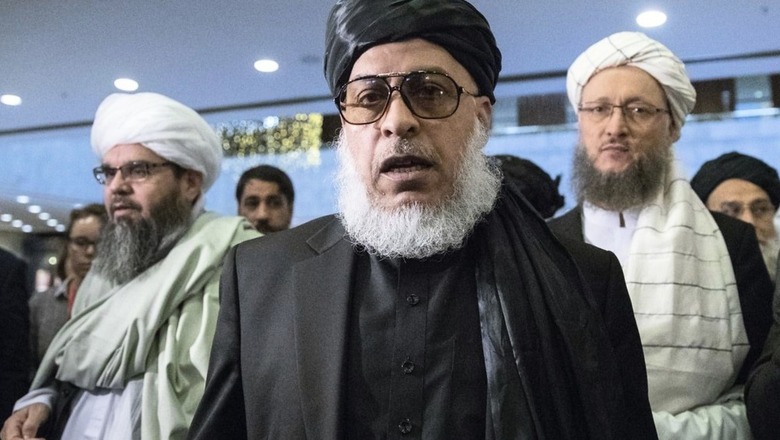
views
While several reports suggested that Taliban were on Friday close to forming a government, with the hardliners under intense international scrutiny over their vow to rule Afghanistan with greater tolerance, especially on women’s rights, News 18 has learnt that the process of government formation is unlikely to take place on Saturday.
Sources told News18 that the Taliban are unlikely to form government on Saturday as most of their leaders are still in Kandahar and their negotiation is yet not complete. The announcement of a new administration, earlier expected to be made after Friday afternoon prayers, would now not happen on Saturday either.
The hardline Islamists face the enormous challenge of shifting gears from insurgent group to governing power, days after the United States fully withdrew its troops and ended two decades of war.
While the West has adopted a wait-and-see approach to the Taliban, there were some signs of engagement with the new leaders gathering pace.
The United Nations said it had restarted humanitarian flights to parts of the country, linking the Pakistani capital Islamabad with Mazar-i-Sharif in northern Afghanistan and Kandahar in the south.
A Taliban spokesman tweeted early Friday that China’s foreign ministry had promised to keep its embassy in Afghanistan open and to “beef up” relations and humanitarian assistance.
Western Union and Moneygram said they were resuming money transfers, which many Afghans rely on from relatives abroad to survive, and Qatar said it was working to reopen the airport in Kabul — a lifeline for aid.
The British and Italian foreign ministers were meanwhile both headed to Afghanistan’s neighbours in the coming days to discuss the plight of refugees still hoping to escape the Taliban.
The new rulers have pledged to be more accommodating than during their first stint in power from 1996 to 2001, which also came after years of conflict — first the Soviet invasion of 1979, and then a bloody civil war.
That first regime was notorious for its brutal interpretation of sharia law, and its treatment of women, who were forced behind closed doors, banned from school and work and denied freedom of movement.
Now, all eyes are on whether the Taliban can deliver a cabinet capable of managing a war-wracked economy and honour the movement’s pledges of a more “inclusive” government. Speculation is rife about the makeup of a new government, although a senior official said this week that women were unlikely to be included.
In the western city of Herat, some 50 women took to the streets Thursday in a rare, defiant protest for the right to work and over the lack of female participation in the new government. “It is our right to have education, work and security,” the demonstrators chanted in unison, said an AFP journalist who witnessed the protest. “We are not afraid, we are united,” they added.
One of the organisers of the protest, Basira Taheri, told AFP she wanted the Taliban to include women in the new cabinet. “We want the Taliban to hold consultations with us,” Taheri said. “We don’t see any women in their gatherings and meetings.”
Women’s rights were not the only major concern in the lead-up to the Taliban’s announcement of a new government.
In Kabul, residents voiced worry over the country’s long-running economic difficulties, now seriously compounded by the militant movement’s takeover. “With the arrival of the Taliban, it’s right to say that there is security, but business has gone down below zero,” Karim Jan, an electronic goods shop owner, was quoted as saying by AFP.
The United Nations warned earlier this week of a looming “humanitarian catastrophe” in Afghanistan, as it called for those still wanting to flee the new regime to be given a way out.
Italy’s foreign minister was due to visit Uzbekistan, Tajikistan, Qatar and Pakistan from Friday to assist Afghan refugees, while his British counterpart was to head to the region next week.
Qatar’s foreign minister said on Thursday the Gulf state was working with the Taliban to reopen Kabul’s airport as soon as possible. Turkey said it was also evaluating proposals from the Taliban and others for a role in running the airport.
(Inputs from AFP)
Read all the Latest News, Breaking News and Assembly Elections Live Updates here.




















Comments
0 comment